Reel Life January 2023
- Southland
- 24/01/2023
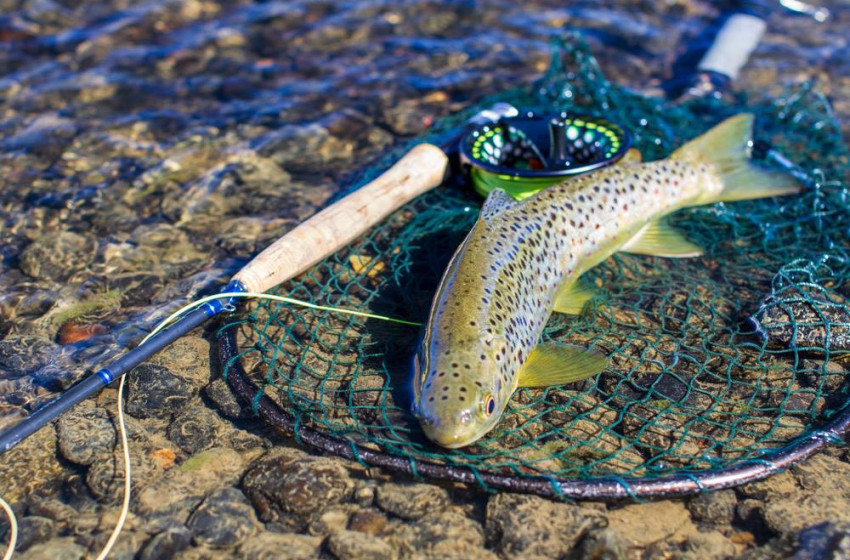
Is it time to take up fly fishing?
Over the holiday period, spin anglers may have experienced the frustration of observing trout rising away on the surface and being unable to tempt them into taking their lure.
Above Right: learning to fly fish can open up extra angling opportunities.
In these cases, fly fishing can become particularly effective.
If you are not a fly angler and would like to try it out, summertime is the perfect time to give it a go because there is lots of terrestrial insect activity.
Here are a few notes on the basic equipment requirements.
The rod
Fly rods come in different weights; the lower the weight, the lighter the rod and the more suitable it is for delicately presenting small flies.
Heavier weight rods are better for casting larger/heavier flies and fighting fishing in larger water.
For Southland, a 5 or 6wt rod of nine feet in length is ideal in most situations.
The reel
A reel is primarily there to simply hold your line.
You don’t need anything too fancy or expensive.
Just select an appropriate fly reel that is in your price range.
Lines
Match the fly line weight to your rod weight.
We recommend a weight-forward taper and a floating line (this will be coded as WF5F or WF6F).
With this line, you will be able to present dry flies/nymphs and swing streamers.
You’ll be able to get all of the above (rod, reel & line) in a combo from your local retailer — just pick your price point.
From the end of your fly line to the fly is the business end, and with experience, you will learn to adapt it.
We recommend a nine-foot-long tapered monofilament leader.
This will join your fly line with a loop-to-loop connection.
At the end of your leader, attach a small tippet ring.
This will save you eating into your leader each time you change your tippet.
For the tippet, start with a 6lb breaking strain.
This is the ‘goldilocks’ strength — light enough to present flies well but strong enough to get the fish to the net relatively quickly.
The flies
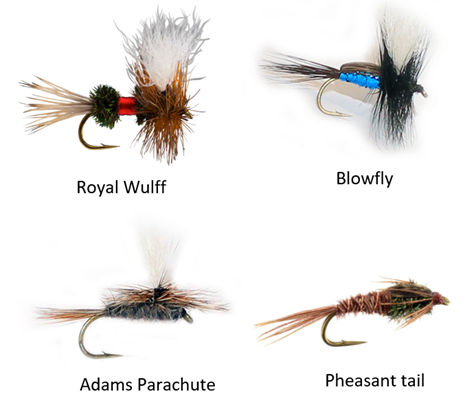
Some excellent go-to fly options
Fly selection is something you will learn to narrow down with time.
Initial dry flies to buy are Parachute Adams, Blowfly, and Royal Wulff.
Go-to nymphs are small (size 16) pheasant tails and hare n’ copper.
You don’t need a lot of flies to get started, then just buy more of what works.
Check out the lower Mararoa
The lower Maraora River is a fantastic fishery and has been fishing very well over the last few weeks.
Natural coloured soft baits rigged with a 1/12thoz jig head have been doing the business on both brown and rainbow trout.
If you are a spin angler, focus your fishing effort on the deep pools and runs and behind any large boulders.
In the deep pools, make sure you give your soft bait some time to sink before starting your retrieve.
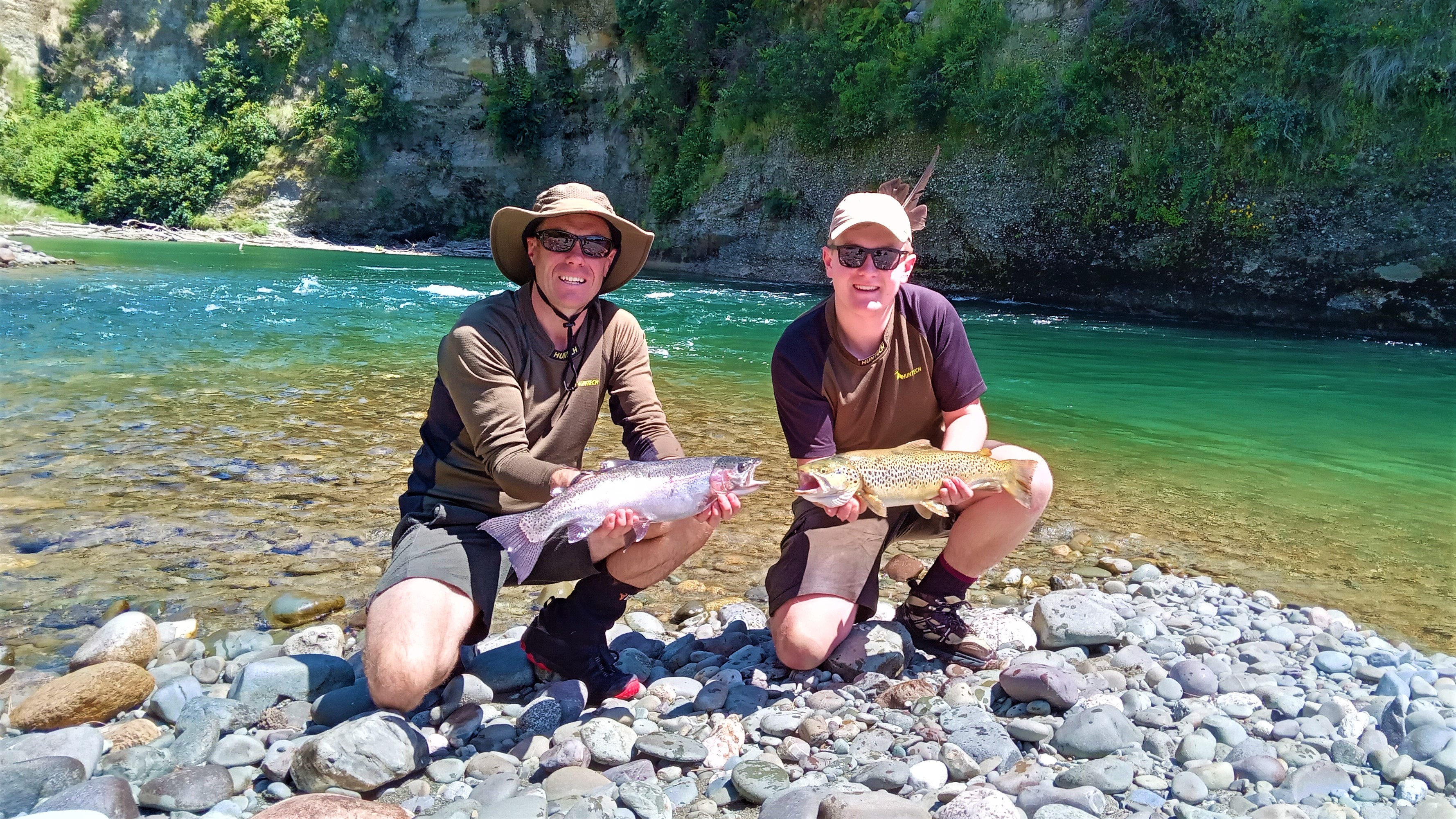
here are good populations of both brown and rainbow trout in the lower Mararoa River.
With the warm conditions, fly anglers shouldn’t have any problem convincing the rainbow trout to lift for a Royal Wulff or blowfly imitation, particularly in the faster water.
The access points off Weir Road (access to the gorge) and at the Whitestone River confluence (Hillside-Manapouri Road) are worth checking out.
Careful summer fish handling – extra important
We will all no doubt have been enjoying the fantastic weather Southland has had over the festive period.
Air temperatures have been well into the high 20’s, and water temperatures in some rivers have been in the mid-20s.
These water temperatures make wet-wading very pleasant but can put some stress on our trout, which means careful fish handling is extra important.
If you catch a fish over the summer months and elect to release it, there are a few things you can do to make sure the fish is released in the best way possible.
Firstly, play your fish as quickly as possible; the more time they are on the line, the more fatigued they will be.
Secondly, keep the fish in the water while you remove the hook, and if you want to take a picture, be as quick as you can.
Finally, gently release the fish away from the river/lake margins.
In the margins, the water temperature will be much higher, and consequently, the dissolved oxygen levels will be lower, which will make recovery difficult for any released trout.
New Southland Fish & Game staff members
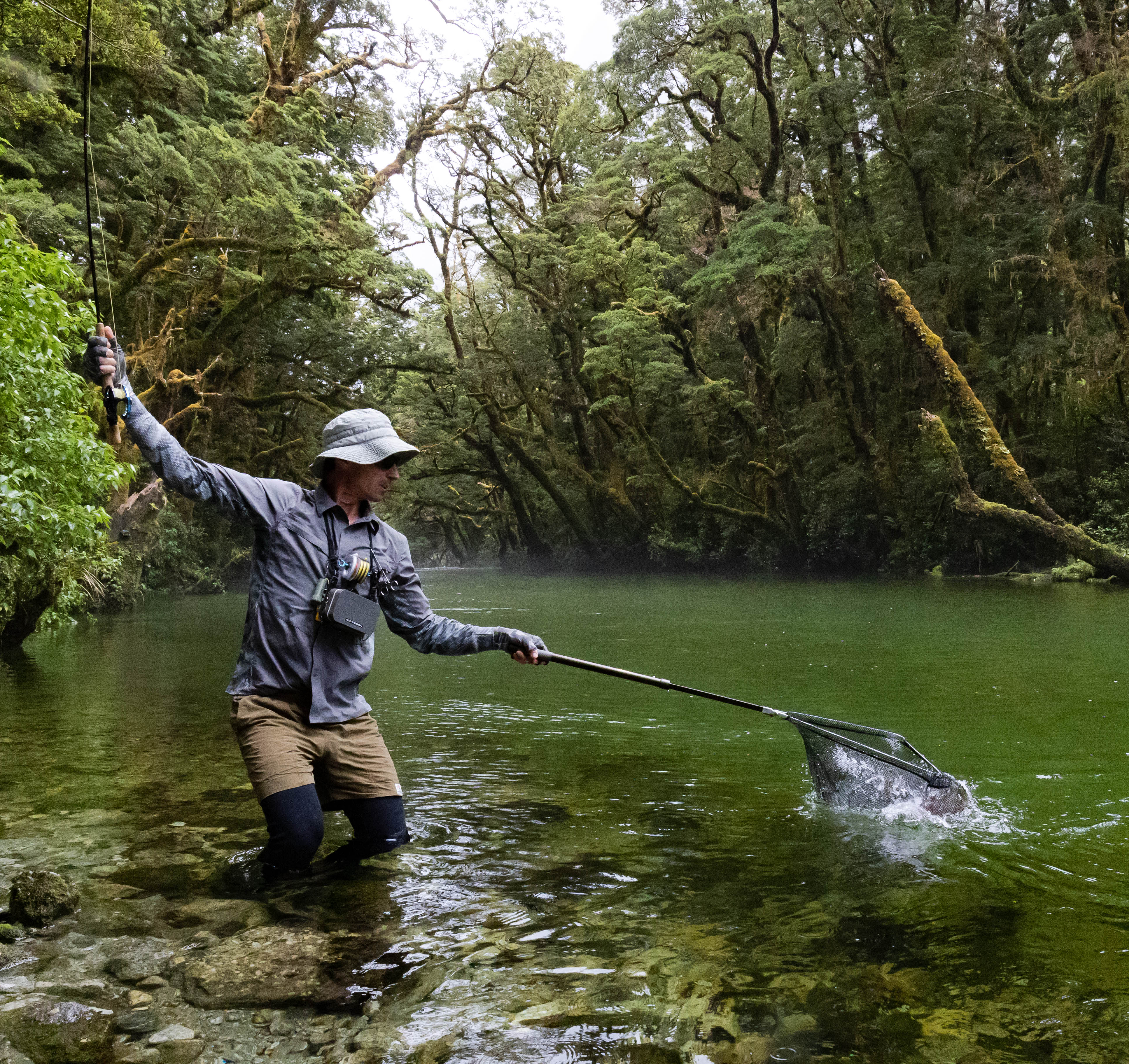
Fish on for Invercargill-based field officer Ben Febery
There have been a few staff changes in the Southland Fish & Game Office, with former Invercargill-based field officer Erin Garrick resigning last year.
Her position has been filled by Ben Febery.
Ben has a background in education, is an avid fly angler and enjoys duck hunting and deer stalking.
If you happen to bump into Ben out on the river, make sure you pick his brains, as he is a very knowledgeable angler.
There has also been an addition to the Te Anau Fish & Game office.
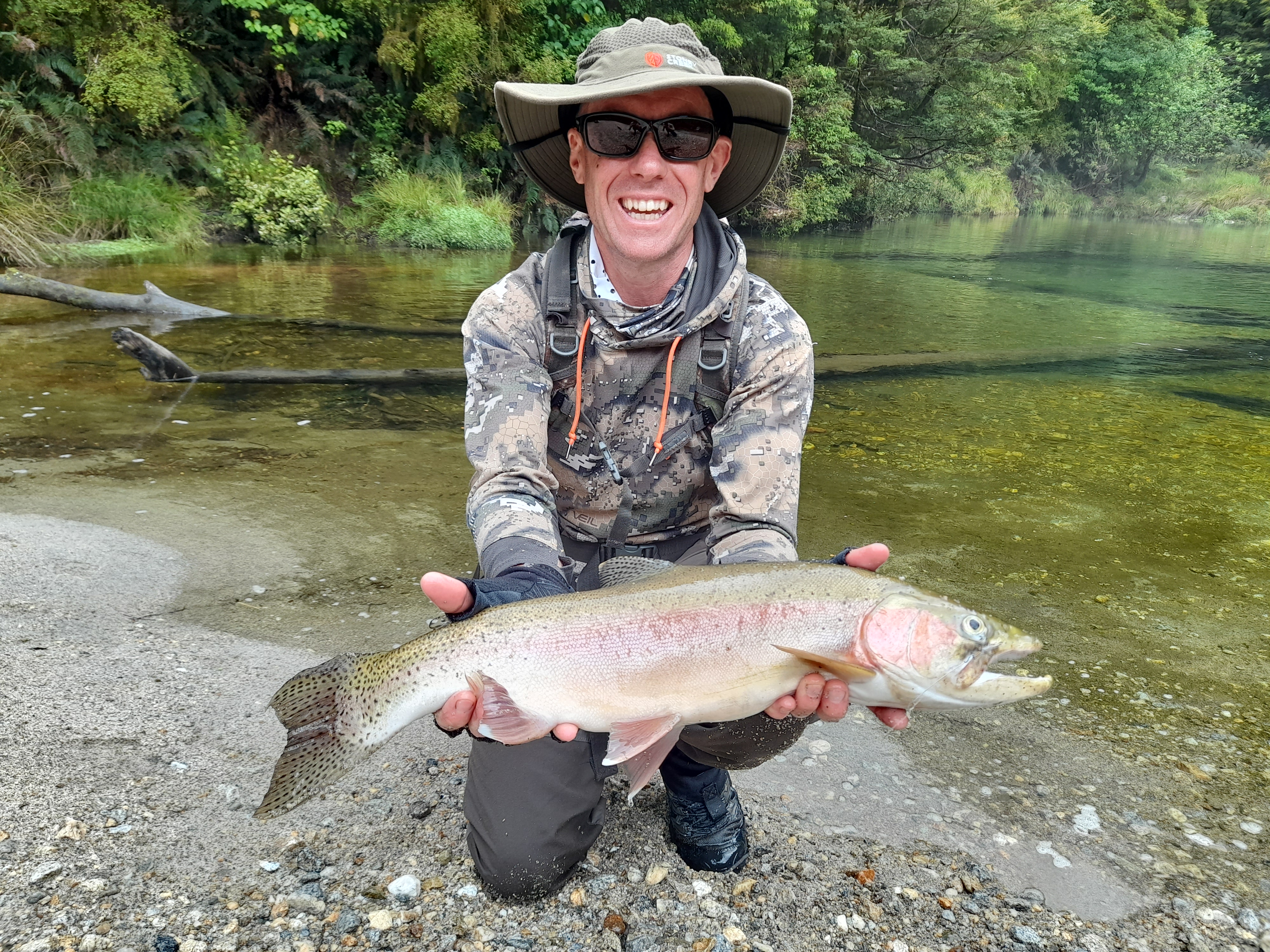
Te Anau-based field officer Dwight Grieves with a nice rainbow trout.
Former Te Anau-based police officer Dwight Grieves has joined our team.
Dwight is a keen angler and hunter, and his role will be focused on managing our Fiordland and Northern Southland fisheries and Clean, Check, Dry advocacy.
Tight Lines
Cohen Stewart, Southland Fish & Game